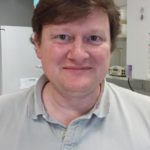Présentation
Our knowledge on P. falciparum drug resistance has considerably progressed, particularly with the discovery of molecular markers associated to artemisinin derivatives and partner drugs (piperaquine, mefloquine) resistances. However, the race between effective antimalarial treatments and P. falciparum drug resistance is underway and must be won. The current observed pattern of ACT evolution in Southeast Asia seems to be similar of both chloroquine and sulfadoxine-pyrimethamine resistance in the past, before the dominant resistant lineage spreading to India and Africa. However, currently, molecular tools are available for implementing large-scale, cost-effective and real-time monitoring. As multidrug resistance is still confined in Southeast Asia, we must take advantage of this unique situation and favors effective monitoring of P. falciparum drug resistance in endemic areas and anticipate any risks associated with the emergence and spread of the multidrug resistant parasites, through a global and structured surveillance project combining laboratory expertise, clinicians, epidemiologists and bio-informatics.
The objectives of the SaMARA project are to provide up-to-date data on the distribution of the molecular markers associated to antimalarial drug resistance in Africa and to investigate molecular signatures associated to ACT treatment failure.
The outcomes will be
- Monitor resistance in Africa: Provide data on artemisinin, partner drugs (mefloquine and piperaquine) and sulfadoxine-pyrimethamine resistance by using K13 PCR/sequencing (associated to artemisinin resistance), PfPM2 and Pfmdr1 qPCR (copy number of PfPM2 and Pfmdr1 gene associated to mefloquine and piperaquine resistance) and dhfr/dhps PCR/sequencing (associated to sulfadoxine-pyrimethamine resistance) from TES or other samples, including sequencing and analysis from falciparum isolates to distinguish reinfection from recrudescent infections (msp1, msp2, glurp)
- Investigate molecular signatures associated to treatment failures: By using WGS, whole genome sequences of paired samples (D0 and Dx) will compared to explore potential molecular signatures associated to treatment failure.
